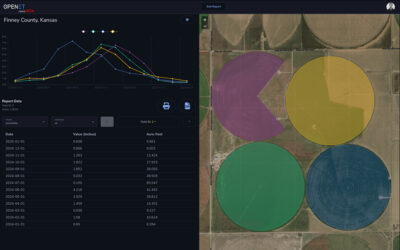Reno, Nev. (August 24, 2021) – DRI announced that Philippe Vidon, Ph.D., has been selected to lead the Institute’s Division of Earth and Ecosystem Sciences, which conducts high-quality basic and applied research in the life and Earth sciences, particularly those dealing with the complex interactions of geological processes, organisms, biological communities, and human societies on the Earth’s surface. Vidon comes to DRI from the State University of New York College of Environmental Science and Forestry (SUNY-ESF) in Syracuse, New York, where he served as the Director of the Council on Hydrologic Systems Science since 2019 and as professor since 2010.
“It’s an honor to join DRI and to lead the talented and diverse group of entrepreneurial scientists who make up the Division of Earth and Ecosystem Sciences,” said Vidon. “DRI and its faculty are recognized around the globe for their high-quality research of life and earth sciences, and I’m very pleased to be here.”
Vidon’s most recent research has focused on a broad range of topics including watershed management, water quality, soil biogeochemistry, bioenergy, and the impact of beaver dam analogues on floodplain hydrogeomorphology and landscape resiliency.
“We are excited to welcome Dr. Vidon to DRI,” said DRI President Kumud Acharya, Ph.D. “His broad range of research in Earth and environmental sciences, and his experience mentoring early and mid-career scientists make him a terrific addition.”
During his time at SUNY-ESF, Vidon served on numerous committees and advisory groups. These service activities addressed both academic as well as environmental challenges.
Philippe obtained his Ph.D. in geography from York University, ON, Canada, in 2004, and was a professor at Indiana University – Purdue University in Indianapolis until 2010. He earned his Master of Science at the National Agronomic Institute of Paris-Grignon in Paris, France, and his Bachelor of Science in physics at Pierre et Marie Curie University in France.
###
The Desert Research Institute (DRI) is a recognized world leader in basic and applied environmental research. Committed to scientific excellence and integrity, DRI faculty, students who work alongside them, and staff have developed scientific knowledge and innovative technologies in research projects around the globe. Since 1959, DRI’s research has advanced scientific knowledge on topics ranging from humans’ impact on the environment to the environment’s impact on humans. DRI’s impactful science and inspiring solutions support Nevada’s diverse economy, provide science-based educational opportunities, and inform policymakers, business leaders, and community members. With campuses in Las Vegas and Reno, DRI serves as the non-profit research arm of the Nevada System of Higher Education. For more information, please visit www.dri.edu.


